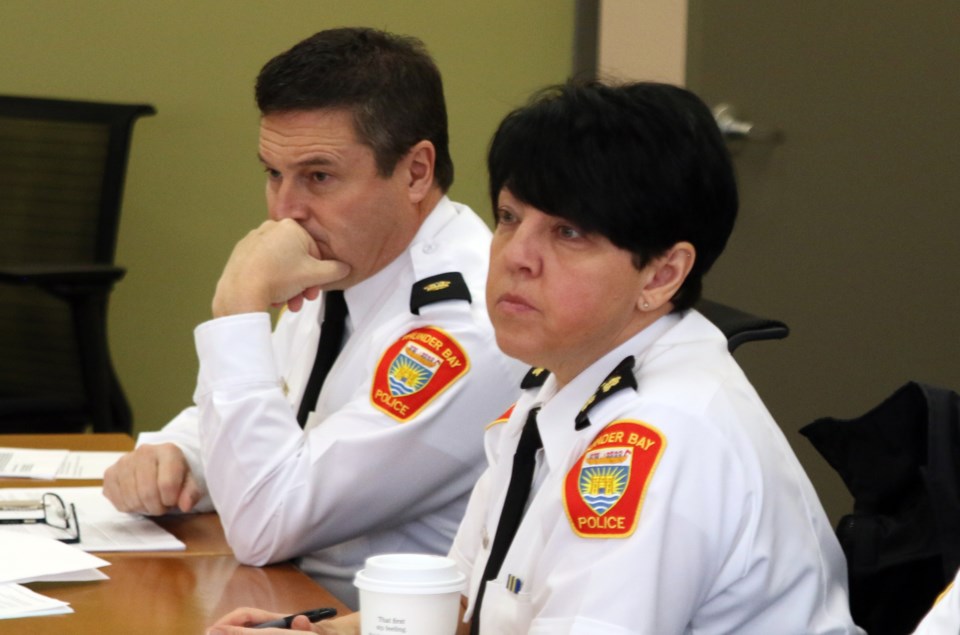THUNDER BAY - A little more than a year after the Office the Independent Police Review Director found systemic racism at an institutional level in the Thunder Bay Police Service, police Chief Sylvie Hauth says she is pleased with the progress made to date to repair the damage.
“We are very happy with the work we have been able to do in the first year that the report came out,” she said.
“For us it’s really balancing not only what needs to be done in terms of the recommendations, but also looking at the bigger picture in terms of my resources for day to day work, but also in terms of budget requirements. Last year there were budget asks for the OIPRD recommendations and there are some again this year in the 2020 budget.”
In December 2018, Gerry McNeilly released his 300-plus page report detailing failings on the part of the Thunder Bay Police Service to address the policing needs of Indigenous people in the community.
The report handed down 44 recommendations. The one-year report on the progress of those recommendations was presented on Tuesday to the Thunder Bay Police Services Board and according to Hauth, the Police Service has been moving forward in all areas.
“I think when you look at the report, throughout the 44 recommendations in the first year we have at least touched on every single one,” she said. “Some of them are at various stages. We have tackled in Year 1 some very big projects.”
One of the most significant steps taken is the reinvestigation of nine sudden deaths involving Indigenous people, which the OIPRD recommended be reopened because the initial investigations lacked quality.
“We were able, in September this year, to outline the terms of reference and put forward the information with respect to the process underway under the executive governance committee,” Hauth said. “I think we’ve made great strides in terms of initiating that process.”
Other important projects moving forward include body-worn and in-car cameras, name tags for officers, and moving to the province-wide Optic system from a standalone one.
“Instead of being stand alone, it will open up the transfer of information across the province which will be huge from an investigative standpoint,” Hauth said. “Those are projects that were big in terms of budget asks, but I think will pay dividends as a service moving forward.”
“Other projects, for example the name tags, are a one-time cost,” Hauth continued. “From year to year the totals have changed depending on where the project stands, and training is still an avenue I need to consider moving forward and the costs that need to be associated with that specific recommendation.”
The next full report to the Police Services Board will be next December, though the board will continue to be updated throughout the year.
Hauth also informed the Police Services Board the service has received a provincial grant for prisoner security and transportation, which is up from last year.
In 2018, Thunder Bay Police received $1.6 million. That funding was decreased to $1.3 million in 2019 and in 2020 is has been increased to $1.5 million.
“We have specific realities in the northwest in terms of how the courthouse operates and how we deliver services,” Hauth said. “We are thankful for the increase, but it does not reflect that work we do.”
The Police Services Board also received an update on the service’s new recruitment strategy. Last month, the initial goals of the strategy were presented to the Police Services Board.
Supt. Dan Taddeo updated the board on recruitment efforts throughout Northwestern Ontario and Manitoba.
“The feedback we get makes us believe we are getting our message across,” he said. “Clearly that message was lost and not provided to them before.”
The recruitment strategy looks at being more proactive and seeking out recruits rather than letting them come to the Service, Taddeo said.
“Our response has been positive,” he said. “We have already received applications. I can say with confidence we would not have received those if we did not do this.”
